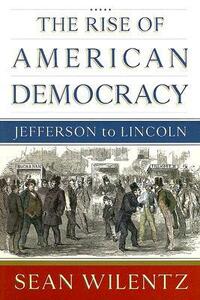Take a photo of a barcode or cover
I haven't finished this and I will probably never sit down and read it all the way through, which is fine. It's an excellent study of the period and my only complaint is that it is perhaps too comprehensive. Good for sinking into the details of any aspect of the times (changing party system, accomplishments of each administration, etc.) but not so good for getting a clear overall narrative. Or maybe it is, but only if you can read it intensively and all at once, which I can't do.
hard to read. also the remaindered paperback i bought of it is trimmed way, way too small and glued too tight -- as result, it is impossible to read without exerting like several kilojoules of energy to keep it pried open.
if you're really into a kind of breathless, light recap of american electoral history and need like 1200 pages of that, go nuts on this.
if you're really into a kind of breathless, light recap of american electoral history and need like 1200 pages of that, go nuts on this.
Whoa! So I read the pro-Whig epic "What Hath God Wrought", which covers the Jacksonian era of American history, so it's interesting to see that same period, alongside Jefferson and Lincoln, from the view of what used to be called "the Democracy". I am NOT a huge Andrew Jackson fan, but Wilentz makes a decent case for some of the main ideologies of his party (anti-bank, anti-tariff, etc.) without sugarcoating the issue of slavery suffusing much of the era. It is a LONG book, so don't try to read it in one setting, but it is worth a look.
An exhaustive book on the transition from the republicanism that defined the early era of America to the full-blown, but not without its own contradictions, democracy that we are familiar with today. And when I say exhaustive, I mean I am surprised this wasn't split off into three separate volumes. Wilentz puts enough details on social and political history covering, roughly, from 1789 to 1860 that it is a great reference on early America and its government as well as a good read. Wilentz also sticks pretty close to his theme about democracy's slow rise throughout. Of course, his greatest strength, attention to detail, is also his greatest weakness. At times he seems to overburden his narrative with too many details, which makes the task of completing this book a herculean effort at times. An example of this is the fact that Wilentz tends to throw out a name that he expects us to know, even if it's the first time you've ever heard of him or her, and never repeats the name or gives much details. Otherwise, this is a good read for all serious American history buffs.
